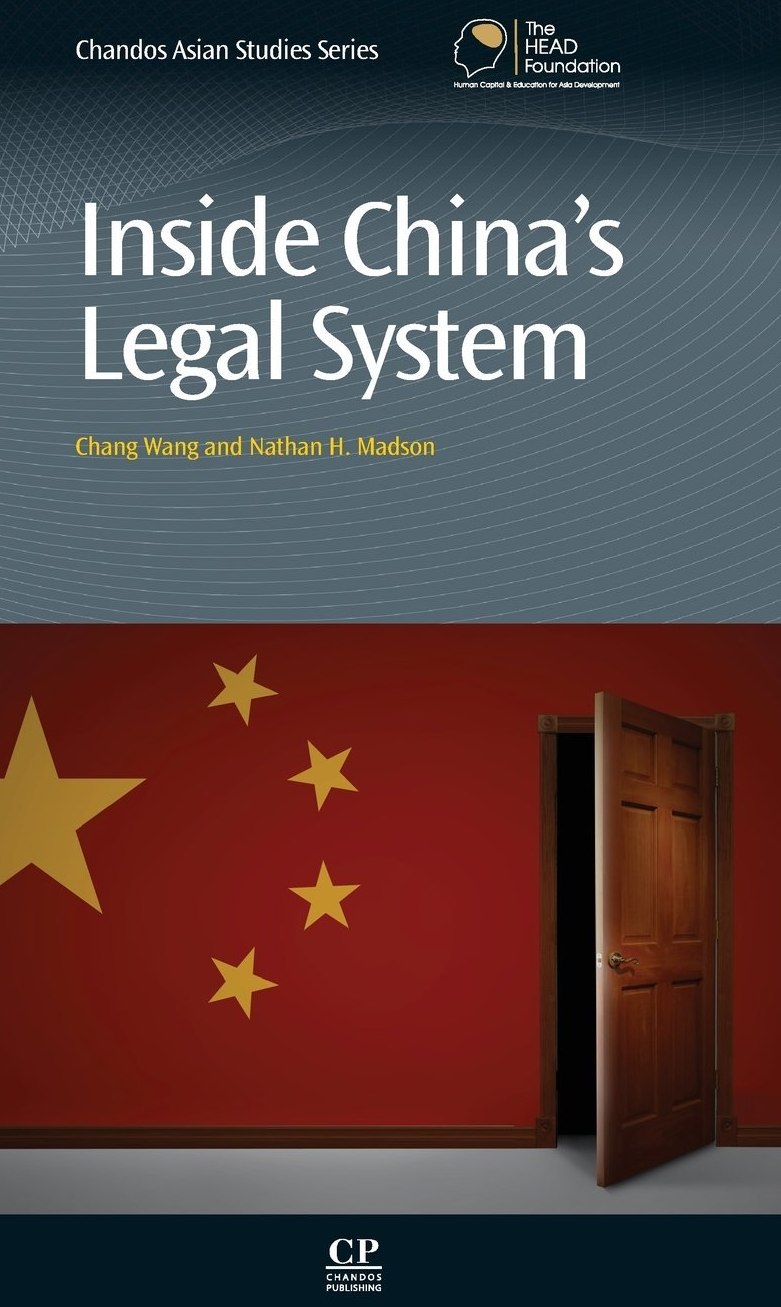Inside China’s Legal System: A new legal treatise on Chinese law

Thomson Reuters recently received international acknowledgement for a legal treatise on Chinese law authored by two employees. The 350-page volume — Inside China’s Legal System — is a comprehensive overview of the Chinese legal system. The book is co-authored by Chang Wang, chief research and academic officer, and Nathan Madson, who previously worked for Findlaw until August 2014, when he was admitted with a full scholarship to New York University as a PhD candidate in Anthropology.
The book has been adopted by a number of law schools in the US and in Europe – the University of Minnesota, William Mitchell College of Law, the University of Bern, the University of Lucerne, and the University of Vienna – as the official textbook on Chinese law. The book has also received rave reviews on Amazon and Barnes & Noble.
The book discusses the development of legal discourse and the ever increasing influence of Western jurisprudence in contemporary China through comparative law. It begins with a study of the legal traditions and core assumptions underlying the current role of law in China, followed by a comparative analysis of the respective legal conventions and beliefs in China and the West. The book examines Western, especially American, influences in specific areas of Chinese law, and the role US jurisprudence has played and could play in the “modernization” of the Chinese legal system. Attention is paid to cross-cultural misunderstandings and misinterpretations, as well as the interaction between culture and law.
There are three main parts to the book:
1) Historical views: Starting with the competing schools of legal thought – Confucianism and Legalism – the authors move from the legal systems of imperial China to the Republic of China and finally the People’s Republic of China. Part I ends with a discussion of the growing influence the West has had on China’s current legal structure.
2) The players: Individuals, governmental bodies and bureaucracies that have a prominent role in China’s legal system are examined. It is not just laws that compose the legal system of the PRC, but also the courts and judges who explain what the laws mean. Moreover, lawyers, police and the secret police all play an important role in China’s legal system.
3) Case studies: Civil, criminal and administrative laws are described through case studies. In addition to describing important selections from these three bodies of law, the authors look at how the laws have been implemented. Though China is not a common law system, and thus does not follow case precedent, the case studies still give the reader a broader understanding of the Chinese legal system than she would gain by solely reading statutes.
“In the case of China, the facts, studies and research support two extremes: the imminent collapse of the CPC and the PRC as a whole, or that the PRC will one day take the leading role in the global economy and serve as a pre-eminent world power,” said Wang and Madson. “Yet there is also empirical evidence and sound analyses that support a variety of other outcomes.”
Wang and Madson continued: “This book, however, offers the reader a look inside the Chinese legal system, from its innermost workings to the larger themes surrounding the rule of law. While we hope to provide as complete a picture of the legal system as possible, the best that any legal scholar or scholar of China can do is present the facts and an interpretation of those facts. We hope that this book helps us to understand China and ourselves a little better.”